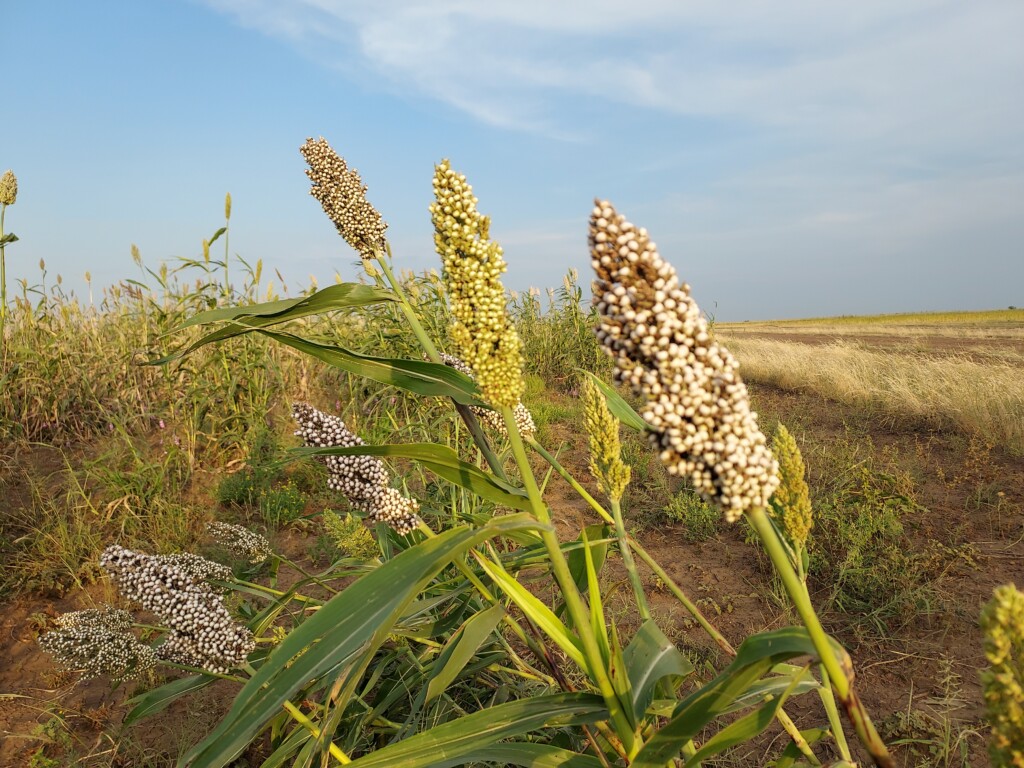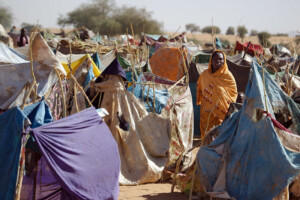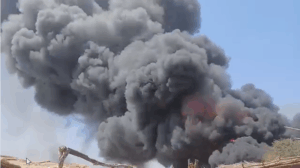South Kordofan traders resort to South Sudanese Pound as banks are closed

Sorghum cultivated in Sudan (Photo: RD)
Merchants and vendors at the markets of South Kordofan have resorted to barter trade and dealing with South Sudanese currency, because of the persisting liquidity crisis in the state.
Radio Dabanga sources reported from the South Kordofan capital Kadugli and from Delling in the northwestern part of the state that the liquidity crisis, caused by the continued closure of most of the banks in the state, has led to the use of the South Sudanese currency in the markets of the two towns.
The banks have run out of cash because the main roads to and in South Kordofan are closed because of the insecurity in the region.
“The liquidity crisis also caused many people to barter trade in commercial transactions,” one of the sources said.
“Goods from South Sudan, such as soap, tea, and biscuits, but also petrol, have invaded the South Kordofan markets at reasonable prices,” he explained. “A gallon of petrol costs SSDG1,500, which is about SDG11,000. We pay the equivalent of SDG250 for a bar of laundry soap costs and SDG1,000 for a box of tea.”
People in South Kordofan have been suffering from an increasing liquidity crisis for months, following the closure of the highway between Delling and El Obeid, capital of North Kordofan, and other roads because of the ongoing battles between the Sudan Armed Forces (SAF) and the Rapid Support forces (RSF) in the country.
In addition, the Delling-Kadugli road has been closed on and off by the Sudan People’s Liberation Movement-North under the leadership of Abdelaziz El Hilu (SPLM-N El Hilu).
Earlier this week, farmers in the area of Delling complained about a severe liquidity crisis hitting banks in Delling. They told Radio Dabanga that most of them did not receive agricultural funds since August.
SPLM-N El Hilu
Areas under control of the SPLM-N in South Kordofan and Blue Nile region have been using the South Sudanese currency since 2011, when war with the Sudan Armed Forces (SAF) resumed – after a period of peace that lasted more than 10 years.
In 2017, the SPLM-N split into two groups. After the SAF-RSF war erupted on April 15, rebels of the SPLM-N El Hilu began attacking Sudanese army sites from the areas under their control in South Kordofan and the southern part of Blue Nile region.
On Tuesday, sources reported that Kadugli “is enjoying relative calm” after SPLM-N attacks on the army site in the city stopped this month.
Rebel fighters in Karkal, between Delling and Kadugli, however, closed the road again on Monday, after they had opened it for one day and a number of vehicles was allowed to enter and exit Kadugli.
The sources also complained about the severe liquidity crisis which has led to the scarcity of basic consumer goods, especially the staple food sorghum.
They said that meetings are taking place in Karkal, controlled by the SPLM-N, between native administration leaders and rebel commanders about allowing the flow of goods and civilian traffic between Delling and Kadugli.











 and then
and then